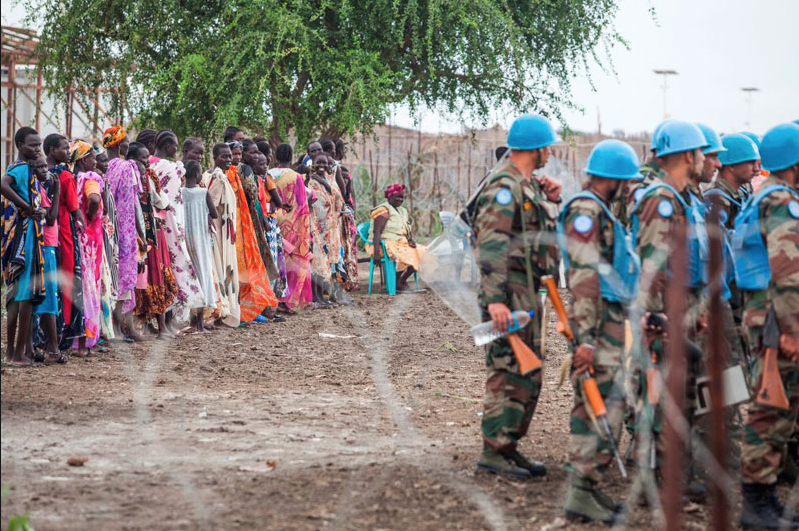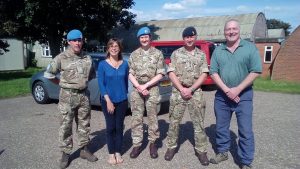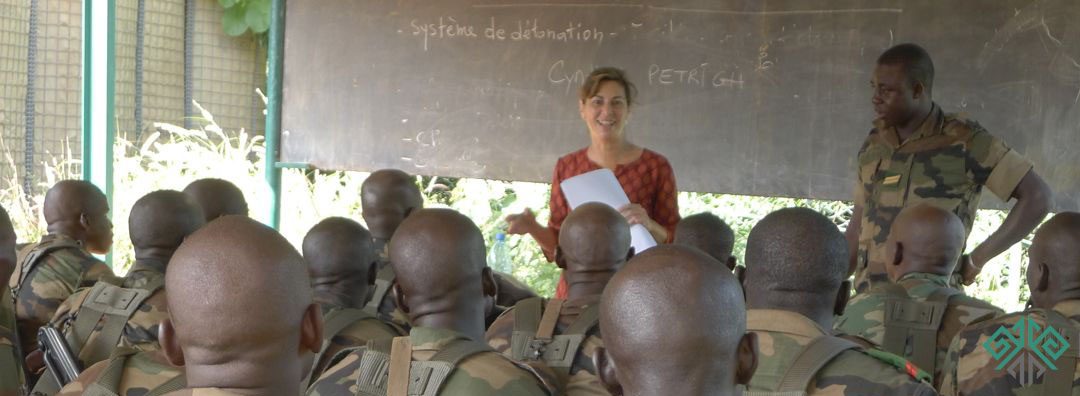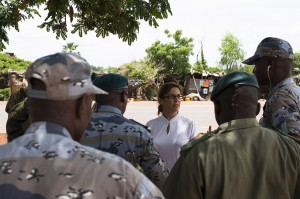
by Cynthia Petrigh | Jun 4, 2017 | OurWork
Beyond peace was invited to advise the Op Trenton military pre-deployment exercise for the UK Engineers troops departing to South-Sudan Malakal and Bentiu where they will join the UNMISS.
Cynthia Petrigh from Beyond peace has been involved in this beautiful adventure since 2016, where she contributed to the training of first batch deploying to South Sudan.

After meeting Commander LCol Hislop in Yorkshire in March, she has just just contributed to the Mission Rehearsal Exercise which took place 29 May – 3 June in Norfolk, UK, for the batch to deploy as of July 2017.
We wish good luck for this new batch and keep the good job!

by Cynthia Petrigh | May 10, 2017 | About

No country has reached what Johann Galtung calls « positive peace ». Peace is a long-term objective for any society. A number of steps and actions can however help us move towards a higher level of justice and enjoyment of rights – with a long-term vision for an inclusive and positive peace.
For the past 5 years, the gains made in uplifting health, education, democratisation, well-being, since WWII, are reversed. After a steady increase for more than 70 years, we are witnessing an increase of violence, of contempt for a rules based world, and a slowdown in gains in life expectancy, education, equality.
We are in an unprecedented crisis of distrust, division as examples of a might based world multiply. Today more than ever, we must champion compassion, dialogue, and gender equality as fundamental drivers of positive change.
Today more than ever, we can contribute to diminishing human suffering, and to building the right environment for peaceful societies, by upholding and disseminating the international norms that protect human life and human dignity.
To this effect, we provide training and advisory services to armed forces, peacekeepers and non-state armed groups on International humanitarian law (IHL), prevention of sexual violence and compliance with international norms. In order to put an end to abuse and raise awareness about rights, we provide expertise in monitoring and investigating human rights and IHL violations, gender-based violence and international crimes affecting children. We accompany societies in transition by supporting mediation efforts, dialogue initiatives and women’s participation to peace processes. We share our comparative experience and our field-based evidence in policy and advocacy events and publications.
Beyond peace Pte Ltd is a consultancy established in 2012, specialising in support to mediation efforts and peace processes and in training armed forces on compliance. Our Founder and lead consultant Cynthia Petrigh, who has herself experienced war and exile as a child, is passionate about creating environments where everyone can thrive safely and realize their full potential regardless of their background or identity. After a career as a humanitarian worker working with refugees and victims of torture (as a Head of Mission for the Danish Refugee Council, the Executive Director of Centre Nassim for the victims of torture; or the Director of the Refugee Law Course at the International Institute of Humanitarian Law in Sanremo), she dedicated her work to addressing the root causes of violence through conflict analysis, conflict resolution, and training of combatants. She shares her vast field experience with governments, NGOs and academia, through conferences, workshops, training events and publications. Based on 25 years of international experience in human rights, compliance, dialogue, peace and security, she has demonstrated that it is possible to build trust and foster meaningful and inclusive dialogue across diverse stakeholder groups. The methodology includes tailored assessments, grounding peace in local cultures, transforming analytical insights into practical training and development programmes, and making decisive, pragmatic choices that create value for all parties involved. iN practice, we thoughtfully challenge the status quo while remaining solutions-focused.
Memberships include:
The San remo International Institute on Humanitarian Law
The UK Government’s PSVI ToE
Nepal’s Institute for International Cooperation and Engagement
The Harvard Group of Professionals on Monitoring, Fact-Finding and Reporting
The Global South Coalition for Dignified menstruation
United Against Inhumanity
Clients include: the UN (Office for Disarmament, PBSO, UNDP, Political and peacekeeping missions), the EU, the UK government, The US Africa Command, the ICRC, international NGOs.
Beyond peace works on our own projects and accepts short-term and long-term consultancies with governments, the UN, the EU, academia and NGOs. For inquiries on working with Beyond peace, contact us: Cynthia.petrigh@gmail.com
by Cynthia Petrigh | May 23, 2016 | Resources
The HPCR Advanced Practitioner’s Handbook on Commissions of Inquiry draws from past professional practice in the domain of monitoring, reporting, and fact-finding (MRF) and offers methodological considerations to inform future MRF missions.
by Cynthia Petrigh | Feb 5, 2015 | Resources
Abstract
One dilemma that faces practitioners serving on monitoring, reporting, and fact-finding (MRF) missions concerns the protection of witnesses, victims, and staff. The paradox underlying the issue of protection is that, while statements from witnesses and victims account for the predominant evidence when investigating human rights violations, the very fact that victims and witnesses decide to come forward and contribute to the establishment of the truth can put these individuals at risk. Another dilemma emanates from the ad hoc nature of such missions, in contrast with the need to ensure protection on a long-term scale. In the often-volatile contexts in which MRF missions typically operate, security risks also arise for MRF staff members participating in on-the-ground operations. This paper analyzes how past MRF missions, whether commissioned by ad hoc bodies or by the UN, have grappled with these risks. The paper examines the sources of the obligations to protect witnesses, victims, and staff; the nature of the threats that could arise; the protective steps that have been taken; and the measures that could be taken by MRF professionals in the future. As this paper demonstrates, often a divide exists between aspirational notions of best practice and the reality of what can be delivered, leaving MRF practitioners frequently uncertain about the lengths and limits of their protective responsibilities.




